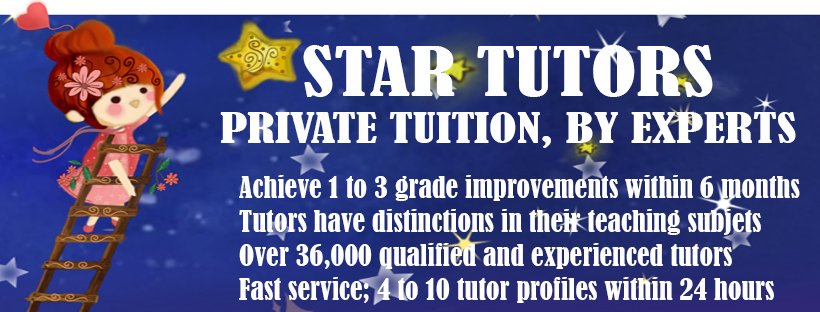Content

Effective Memory Skills | Best Tuition Agency In Singapore | Professional Private Tutors Singapore | Dependable Tuition At Home | Responsible Tuition Teachers
Memory Skills - Learn Without Forgetting

Article by:
William Soh
PGDE – National Institute of Education (Distinction), Nanyang Technological University
BSc – Biomedical Sciences (Honours), National University of Singapore
You will be surprised to see how easy it can be to remember difficult concepts once you establish good study habits. Students can use these effective memory skills to learn better and faster so that they can score higher grades.
READ OUT LOUD - THIS ENHANCES MEMORY SKILLS
Read your materials out loud.
Using multiple senses can help you retain more information, so even just saying the words out loud and then hearing them can be helpful.
Don’t worry about looking foolish reading your Physics notes to your hamster.
You’ll be happy if it helps you ace your next exam.
This strategy might work best when there are a few key items you need to remember.
That’s because the sentences you speak (or even whisper) out loud take on a special distinctiveness.
You remember producing and hearing the items, and so your memory for them is different from the memory of the words you read silently.
If you’re in the library where you can’t speak aloud, try softly or quietly mouthing the information.
LEARNING VISUALLY - SPEED UP YOUR UNDERSTANDING AND MEMORY SKILLS
The process of organizing the materials in a visual manner can help your brain recall the information in a systematic manner, and is one of the very effective memory skills.
Write out what you have to memorize.
Writing an outline, taking notes on what you have read, or simply re-writing over and over a tricky formula or concept that you are trying to master can really help.
Writing uses a different part of the brain than reading.
When you take the time to write down a concept during or after reviewing the material, you’ll cover the concept a second time.
Visual learners will find this extremely helpful. Auditory learners should consider reading the material aloud as well.
Write out flashcards with important facts, formulas or dates.
This method is doubly helpful because 1. The act of writing will help you remember better and 2. The flashcards are a portable tool you can use for future review because they contain all the information that is essential for memory retention – and doing well for that difficult exam.
You are in effect teaching the content to yourself when you summarize and analyze it.
PRACTICE TESTS - USEFUL WAYS TO APPLY YOUR MEMORY SKILLS
Once you finish a practice test, research the material you did not know, and try another test again in a few days.
Remember not to limit your studies to only those items found on the practice exam.
Chances are, your actual exam will include all of the information you’ve been assigned to study, not just questions you found on a previous or practice test.
READING SEVERAL TIMES WILL ENHANCE YOUR MEMORY SKILLS
One reason that many people don’t read much is that they don’t read well.
For them, reading is slow, hard work and they don’t manage to remember as much as they should.
Students for example, may have to read something several times before they understand and remember what they read.
Some of the blame for poor reading skills can be laid at the feet of parents who set poor examples and, of course, on the students themselves who are too lazy to learn how to read well.
DEVELOP GOOD READING AND MEMORY SKILLS - USEFUL MEMORY SKILLS
These methods will help you read with good speed and comprehension:
KNOW WHY YOU MUST READ THIS MATERIAL
Be clear to yourself what you want to get out of it in terms of content absorption of the information in the textbooks, and how to answer application questions.
SKIM FIRST - A GOOD STEP TO DEVELOP YOUR MEMORY SKILLS
Even material that important for the exams that must be studied carefully should be skimmed first.
The idea here isn’t to skip the whole reading process.
Instead, you’ll want to skim the text for important topics and keywords before-hand so that you know what to expect when you actually dig into the material.
Being familiar with the general themes required by the exam questions will help you remember the details.
Skimming 1. Primes the memory, and makes it easier to remember when you read it the second time 2. Orients the thinking and helps you know where the important content is in the document.
Depending on the learning objective, you should slow down and read carefully only the parts that contribute to fulfilling the reading purpose.
Proper skimming includes putting an emphasis on the headings, pictures, graphs, tables, and key paragraphs – which are usually at the beginning and at the end.
HIGHLIGHT THE IMPORTANT PORTION - YOUR EXAMS REQUIRE THESE MEMORY SKILLS
Many students already use highlighter pens to identify key parts of a text.
But many students either highlight too much or highlight the wrong things.
Use a highlighter to mark a FEW key points to act as the basis for mental pictures and reminder cues.
It is crucial to think about the meaning of the text.
Add key words in the margins if you don’t find useful clues to highlight.
Make a note to yourself which concepts you find confusing, interesting or crucial that you need to research further on the internet, and which are useful for you to create notes and/or flashcards with.
Highlighted text from the books needs to be rehearsed in the context of how it fits with the purpose, why it needs to be remembered, and how it fits with important material that preceded it.
Every few paragraphs or pages – depending on the information density – the reader should stop and self-quiz to make sure the important material is being understood and memorized.
Making outline notes of such material after it is first read can be an important rehearsal aid for forming immediate memory, and for later study.
The act of creating such an outline from short term memory, and checking it against the content just read, supports memory formation in very powerful ways.
CONNECT THE DOTS - POPULAR WAY TO ENHANCE YOUR MEMORY SKILLS
Learning to make connections when you consume information pays dividends.
While you study, think of the various ways that the information you are reading, watching or listening to is connected to one another.
This is called contextual learning.
Try to group related information on one flashcard.
LEARN UNEVENLY - THE SECRET TO SUCCESS AND SUPERIOR MEMORY SKILLS
Do not spend time trying to memorize absolutely everything equally well.
Instead, focus on key concepts that underlie the others.
If you focus your time on learning the most critical piece or concept, then you might be able to recall other pieces by association or logical derivation.
THINK IN IMAGES - EXERCISING THIS PART OF YOUR BRAIN CONTRIBUTES TO MEMORY SKILLS
Pictures are much easier to memorize than words.
Pictures become easier to remember when they are clustered into similar groups, or when they are chained together to tell a story.
The highlighted key words in text, for example – if used as a starting point for mental pictures – then become very useful for memorization.
Spot the key words and think of the associated mental images.
Sometimes it helps to also make mental images of headings and sub-headings as these help tremendously with memory skills.
REHEARSE, AS THIS IS ONE OF THE KEYS TO BETTER MEMORY SKILLS
The more you read the material, the stronger your memory will be.
Read in short segments – a few paragraphs to a few pages, depending on content density – all the while thinking about and paraphrasing the meaning of what is written.
Think about the content in each segment in terms of how it satisfies the purpose for reading.
Ask yourself questions about the content: “How does this information fit what I already know and don’t know? Why did the author say that? Do I understand what this means? What is the evidence? Do I agree with ideas or conclusions? Why or why not? What is the practical application? How much of this do I need to memorize?”
To ensure that you are able to recall the information that you have been memorizing, see how many of the mental pictures you can reconstruct.
Rehearse the mental pictures every day or so for the first few days after reading.
AND THEN REHEARSE AGAIN, TO ENHANCE YOUR MEMORY SKILLS
At the end of the reading session, rehearse what you learned right away.
Avoid distractions and multi-tasking because they interfere with the consolidation processes that enable longer-term memory.
Think about and rehearse what you read at least twice later that day.
Rehearse again at least once for the next 2 to 3 days.
STAY WITHIN YOUR ATTENTION SPAN
Paying attention is central to memorization and memory skills.
Trying to read when you can’t concentrate is wasting time, and highly frustrating.
Since most people have short attention spans, they should not try to read dense material for more than 10 or 15 minutes at a time.
After such intense sessions, they should take a break and quiz themselves on what they just read.
Take a break when you feel tired.
FEELING GOOD ABOUT YOURSELF - A POSITIVE WAY TO DEVELOP MEMORY SKILLS
Don’t tell yourself, “I will never be able to learn this”.
Be patient with yourself when you learn new and difficult content.
If you are in a bad mood about having to study, you will most likely not have a productive study session.
Try to adopt a positive mindset, and you will have an easier time learning the important material.
YOUR OPTIMAL STUDY TIMES AFFECT YOUR MEMORY SKILLS
Take the time to think about when you are most alert and able to concentrate.
For some, this may be immediately after school or CCA.
Others may prefer to take a break after school and relax a bit before opening the books.
Regardless of when you choose to study, you will be able to retain more information if you study a bit each day – for 30 to 60 minutes at a time – rather than cramming at the last minute.
Short study sessions help the synapses in your brain process information much better than lots of information in long sessions.
Remember that you must take breaks in your study schedule. Breaks give your brain the chance to absorb what you just studied.
Take a short walk, run an errand for your mum, or play with your pet.
A fresh mind absorbs much better than a tired mind.
CHOOSE A GOOD LOCATION TO STUDY - CONDUCIVE ENVIRONMENT HELPS RETENTION AND MEMORY SKILLS
You need to find a quiet space free of distractions, such as a library or an isolated area of your house
By choosing a regular spot at home to study, your brain will become conditioned into knowing that you have to absorb study material once you get there
STAY ORGANIZED - WHEN YOU ARE CONFIDENT OF WHERE EVERYTHING IS, YOUR MEMORY SKILLS AUTOMATICALLY BECOME SHARPER
Get in the zone.
Create the ideal study space, and gather all the books and items you will need.
Sit in a peaceful environment.
Go where there are no distractions, nothing that will visually catch your eye.
Avoiding “shiny objects” will allow you to focus on what it is you need to memorize.
That means no mobile phones, or those cat clocks with the eyes that move back and forth.
Disorganized notes or a messy study area are enemies to your memory.
By creating order in your environment, you cultivate order in your mind, so that you can better memorize facts, analyze content and recall them later.
GET ENOUGH SLEEP - POSSIBLY ONE OF THE MOST IMPORTANT FACTORS WHEN DEVELOPING MEMORY SKILLS
Experiencing a period of stress or anxiety has a significant impact on your mental state and can make you more forgetful.
Sleep deprivation, which often goes hand-in-hand with periods of elevated stress, is a common cause of forgetfulness because it affects the brain’s ability to store and recall memories.
When you sleep, your brain converts facts from short-term memory to long-term memory.
Even a short nap can help with this process.
If you study in the afternoon and don’t have time for a nap then, review your notes or flashcards at night before going to bed.
Aim to get 9 hours of sleep each night during the regular school term, as this is the optimal level for teenagers and young students.
TEACH SOMEONE ELSE, AS THIS WILL HELP WITH MEMORY SKILLS
Using your brain to figure out a way to teach the material to someone else causes you to think about the material more in-depth and analytically.
By teaching the concept to someone else, you will be able to figure out for yourself which materials you need to further study.
If you find that you can’t explain it, you might want to go back and re-read.
Similar to reading out loud, talking about what you are learning can also help you retain the information better.
You can either study with a friend and quiz each other, or you can try to teach the material to a parent or younger sibling.
NUTRITION AND MEMORY SKILLS
A poor diet results in general sluggishness, which hinders our ability to think and remember clearly.
When your body doesn’t get an adequate supply of nutrients and energy, it negatively impacts your brain function.
Deficiencies in certain vitamins also have been shown to decrease memory skills.
For example, vitamin B12 plays a key role in healthy brain and nerve function.
A vitamin B12 deficiency can lead to neurological problems such as confusion, poor concentration and forgetfulness.
Insufficient levels of folic acid – which is another B vitamin – also appear to negatively impact concentration and memory.
KEEP PRACTICISING THESE MEMORY SKILLS
Sometimes, methods that worked last year may not work this year, because all of us have changing needs and priorities.
It is best to try out most of these memory skills methods to see which works well for you.
Article written for Star Tutors.
Star Tutors
Private Tuition, By Experts
Editor’s note: The opinions presented in this article are the author’s and do not imply any endorsement from Star Tutors or its editors
All health content on star-tutors.org is provided for general information only, and should not be treated as a substitute for the medical advice of your own doctor or any other health care professional. If you have any concerns about your general health, you should contact your own healthcare provider




Hire Singapore's Most Competent Tutors - Learn Effective Memory Skills
Primary 1 Tuition
Primary 2 Tuition
Primary 3 Tuition
Primary 4 Tuition
Primary 5 Tuition
Primary 6 Tuition
PSLE Tuition
Secondary 1 Tuition
Secondary 2 Tuition
Secondary 3 Tuition
Secondary 4 Tuition
Secondary 5 Tuition
GCE O Level Tuition
Junior College 1 Tuition
Junior College 2 Tuition
Integrated Programme Tuition
GCE A Level Tuition
International Baccalaureate Tuition
I want my exam grades to improve FAST. Hire best-possible tutor
Tutors: Please Ensure That You Have Registered At: https://star-tutors.org/tuition-jobs-in-singapore-primary-secondary-jc/
We Are Not Able To Accept Any Tutor Registrations Through This Hire Tutors Form. Thank You
LEARN GOOD MEMORY SKILLS.
START EFFECTIVE TUITION.
ACHIEVE 1 TO 3 GRADE IMPROVEMENTS IN:
MATH-RELATED SUBJECTS
Mathematics Tuition
Elementary Mathematics Tuition
Additional Mathematics Tuition
Principles of Accounting Tuition
LANGUAGE SUBJECTS
English Tuition
Chinese Tuition
General Paper Tuition
Malay Tuition
Tamil Tuition
Literature Tuition
HUMANITIES SUBJECTS
Economics Tuition
History Tuition
Geography Tuition
Social Studies Tuition
SCIENCE SUBJECTS
Science Tuition
Physics Tuition
Chemistry Tuition
Biology Tuition
Star Tutors has a select team of highly qualified tutors who specialize in tutoring Polytechnic-Level and University-Level students
SUBJECT LEVELS
Primary School Tuition
Secondary School Tuition
Junior College Tuition
Polytechnic Modules Tuition
University Modules Tuition
EXAMINATIONS
PSLE Tuition
GCE O Level Tuition
GCE A Level Tuition

Every year, students trust Star Tutors because we have helped them, their siblings and their friends to achieve higher grades.
It is this careful, thorough, and professional ability to match you with the ideal tutor that differentiates us from other tuition agencies.
Effective Memory Skills | Best Tuition Agency In Singapore | Professional Private Tutors Singapore | Dependable Tuition At Home | Responsible Tuition Teachers